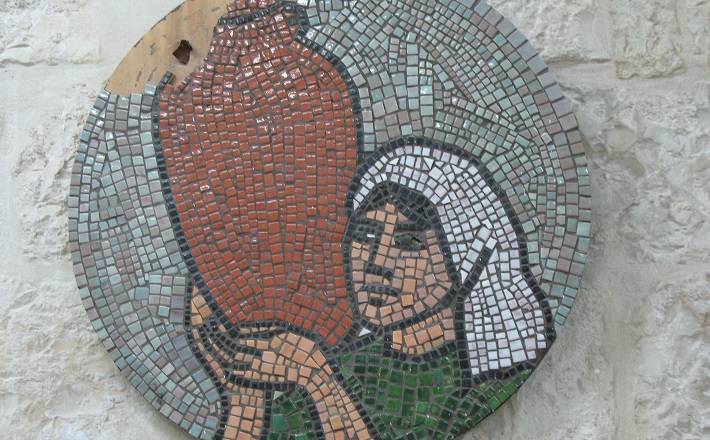Commentary on 1 Corinthians 12:1-11
The Corinthian ekklesia (church) was a vibrant community where members received varieties of gifts from the Spirit.
But at the same time, the church did not have a consensus on, or a clear understanding about, spiritual gifts. Many of them were in rivalry with other members. Some claimed that they were better than others because of their special spiritual gifts. The problem is they did not ask what they could do for the common good or what the Spirit wanted them to do. This is the context in which Paul responds to the issue of spiritual gifts, as he writes in 1 Corinthians 12:1-11.
In 1 Corinthians 12:1-3, Paul seems diplomatic and does not begin with a direct, strong emotional charge against the Corinthians, saying something like: “You Corinthians are bad or wrong.” Rather, he says: “I do not want you to be uninformed.” He means they could know better. Thus, he tackles a matter of understanding rather than disgracing them directly.
To help them understand better about the Spirit and the spiritual gifts, he reminds them of their past, saying they were “enticed and led astray to idols that could not speak” (12:2). At the same time, he also reminds them that they now belong to a Spirit-ruled community and therefore that they can understand better about the work of the Spirit. With this reminder and optimism, he explains what the Spirit is and relates the Spirit with God: “The Spirit of God” (12:3-4), which means the Spirit is inseparable from God.
It is inconceivable that the Spirit does its own work apart from God. Furthermore, the Spirit of God also has to do with Jesus and confirms his work: “Therefore I want you to understand that no one speaking by the Spirit of God ever says ‘Let Jesus be cursed!’ and no one can say ‘Jesus is Lord’ except by the Holy Spirit.” All in all, the Spirit has to do with God and Jesus alike.
Having told the Corinthians of the importance of the correct understanding about the Spirit, Paul goes on to talk about the work of the Spirit and its various gifts necessary for the church (1 Corinthians 12:4-10). A few observations about this passage will follow. First, he states that “there are varieties of gifts, but the same Spirit” (12:4). He emphasizes both gifts and their origin, which is the Spirit. While there are many gifts, there is the same Spirit. The Spirit does not give only one kind of gift to all. The church needs diverse gifts and related works: “The utterance of wisdom,” “the utterance of knowledge,” “faith,” “gifts of healing,” “the working of miracles,” “prophecy,” “the discernment of spirits,” “various kinds of tongues,” and “the interpretation of tongues.” (12:8-10). But all these varieties of gifts come from the same Spirit, however diverse or different they may be. The implication is that members have to recognize other kinds of gifts and cooperate with one another. The Spirit does not promote excessive individualism or flagrant elitism that does not edify the whole community.
Second, while listing the various gifts of the Spirit, Paul places seemingly popular gifts later in the list, such as “various kinds of tongues” and “the interpretation of tongues.” What comes early in the list is wisdom and knowledge, which reflects his earlier gesture toward the Corinthians in 12:1-3 where he began with the importance of a correct understanding. Nevertheless, it is less likely that Paul arranges varieties of gifts here hierarchically. His point is that all gifts are different, yet they are from the same Spirit.
Third, in 1 Corinthians 12:5, Paul says: “There are varieties of services, but the same Lord.” Here, “services” is a translation of the Greek diakonia (singular: diakonos, which means a service or ministry). All works and ministry in the church are part of diakonia. Whoever does the work of the Spirit or whatever is done in the church must reflect the work of Jesus, who is the foundation of the church. His faithful life serving the weak and oppressed should be a constant reminder to all who work in the name of the Lord.
Fourth, in 1 Corinthians 12:6, Paul says: “There are varieties of activities, but it is the same God who activates all of them in everyone.” He talks about “varieties of activities” in the church and says that God activates them in everyone. Here, “activities” is a translation of the Greek energema, which means “deeds.” All deeds, personal or communal, must be informed and activated by the same God. This means that members have to test their deeds or works to see whether their works are based on God. Even if some people claim that their spiritual gifts are superb, their deeds should be tested by God.
Fifth, in 1 Corinthians 12:4-6 as a whole, Paul’s point is not that there is a separate work/domain of the Spirit, Jesus, or of God, but that all gifts, works, and deeds in the church are to be cross-examined in view of the Spirit’s purpose, God’s guidance, and Jesus’ work. Whatever works the Corinthians do or whatever gifts they receive from the Spirit, they must know that their works need guidance from God and Jesus.
Sixth, Paul makes explicit the purpose of the gifts of the Spirit, which is “for the common good” (1 Corinthians 12:7), which means gifts are not to be used for self-promotion or selfish reasons. Rather, they must be used for strengthening the community by taking care of the weak and the despised in society. For the common good, various gifts, as listed in 12:8-10, are given to the church by the Spirit.
Seventh, and last, Paul says in 1 Corinthians 12:11: “All these are activated by one and the same Spirit, who allots to each one individually just as the Spirit chooses.” This verse is a conclusion that all works in the church must be guided by one and the same Spirit. Therefore, they must test their works by the Spirit. The Spirit also chooses which gift to bestow on each and knows what gift is needed for each. Members do not receive gifts of the Spirit as they wish. The Spirit does not give one kind of gift to all members, either. The purpose of different gifts of the Spirit is to make the church stronger and useful to more people.


January 20, 2019